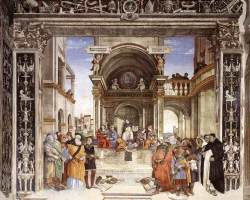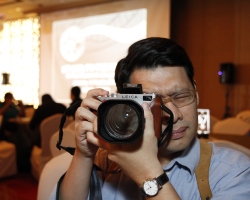-
Fellow Thomist Dennis Polis has published his book!
Leave a commentAugust 15, 2012 by judechua

GOD, SCIENCE AND MIND: THE IRRATIONALITY OF NATURALISM He gave a presentation on the book at ICSA VII: “Brave New World? …
Continue reading -
latest Fellow Thomist: Chris Albrecht
Leave a commentJuly 29, 2012 by judechua
yes, that’s right. We have a now yet another Thomist added to our list. Congrats, Chris. Delighted you are included.
-
Paper on Human Rights, Religious Liberty and Child Cicumcision
Leave a commentJuly 27, 2012 by judechua
I give this address yesterday at the Future Problem Solving Seminar, and students asked intelligent questions, and left me rather …
Continue reading -
London Colloquium
Leave a commentMay 25, 2012 by judechua
Hello Everyone We’ve got a one day colloquium with colleagues from the IOE London on the 11th June 2012. Let …
Continue reading -
Check Out the Inquisitor’s Manual.
Leave a commentMarch 1, 2012 by judechua

The Inquisitor’s Manual is growing. Check it out at http://www.inquisitorsmanual.wordpress.com
-
Book Review
Leave a commentMarch 1, 2012 by judechua
Here’s a book review I sent out of a friend’s book. Enjoy. My review has an RO slant. 29Feb2012_ReviewEducationTextMooneyMark Jude
-
SEMIOTICA
Leave a commentFebruary 21, 2012 by judechua
Breaking news: I’ve gotten a piece accepted in Semiotica! This is for a very interesting new topic called “Significs”.
-
Leave a comment
January 30, 2012 by judechua
Originally posted on The Inquisitor's Manual:
I’ve been so busy doing other things that I haven’t had a chance to write new… -
Diane Rozells, PhD
Leave a commentDecember 5, 2011 by judechua

Just last week my PhD student Diane Rozells successfully defended her thesis on wisdom in education here at the National …
Continue reading -
New Pieces on MasteringPhoto.com (Focal Press)
Leave a commentNovember 18, 2011 by judechua
I’ve been writing a few test pieces for ideas in my Inquisitor’s Manual (www.inquisitorsmanual.wordpress.com) and some of these have been …
Continue reading
Thomistic E.nstitute
Thinking Meta's Through
